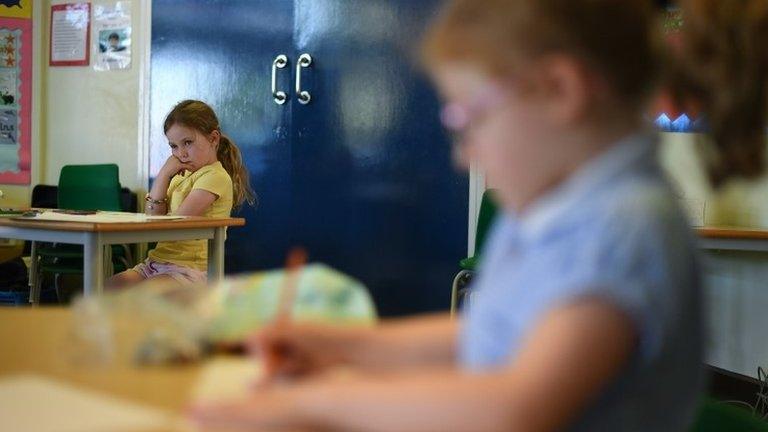Covid: School closures 'throwing children under the bus'
- Published
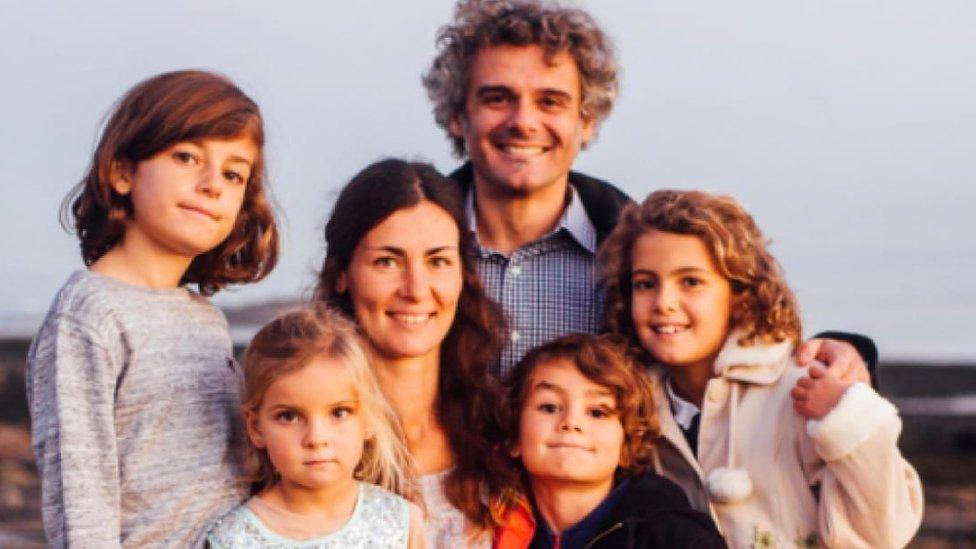
Mother-of-four Kaarina Rutta is juggling work with home-schooling
Parents and teachers say they are "frustrated" schools will be shut until the February half term and fear the impact it will have on children.
Speaking to Radio Wales' phone-in, one caller said they felt young people were being "thrown under the bus".
Others said they were fed up with "bitty information" from the Welsh Government.
First Minister Mark Drakeford said it was the "best certainty" he could offer "in a world which is highly uncertain".
So how have parents, pupils and professionals reacted to the announcement that schools may not reopen until 22 February?
A father treating Covid patients
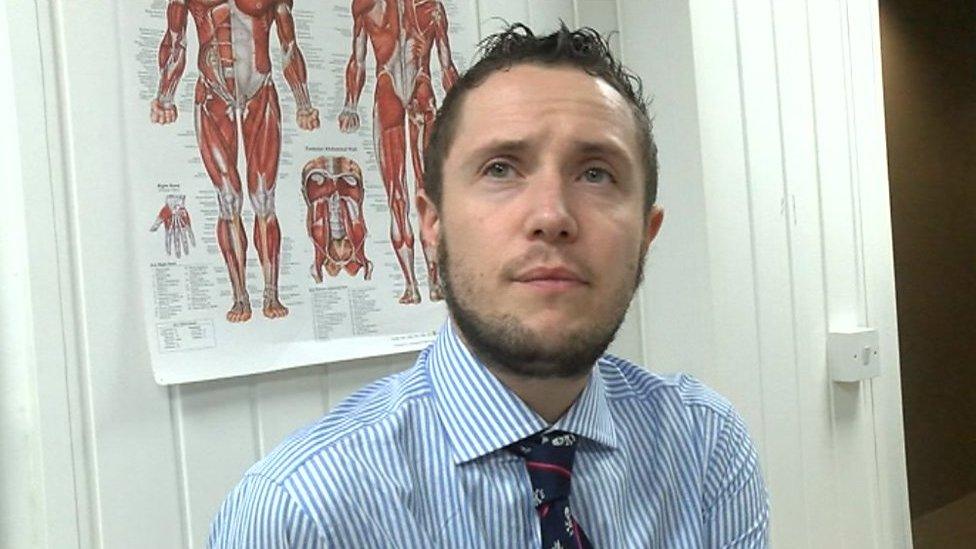
Dr Dai Samuel welcomed the news as a consultant treating Covid patients - but as a dad he feels some "trepidation"
Dr Dai Samuel, a consultant at the Royal Glamorgan Hospital in Llantrisant, Rhondda Cynon Taf, is also a father and lives in one of the worst-hit areas in Wales.
He said he had mixed feelings about the decision as he had "two hats on" - one as an NHS doctor treating Covid patients and the other as a dad.
"The hospitals are full and the ITU units only have beds now because they've expanded that capacity," he said.
"It's a very precarious position and I just hope that this measure now for the next three to six weeks will hopefully allow us to get through this winter, allow the vaccines to take effect and get us out of this mess come the spring and summer.
"I'm a doctor so, from a medical point of view, yes [the decision is] a massive sigh of relief, but as a father and someone who lives in Merthyr - a town that's been hit already significantly by the virus and the economical impacts of that - I've got some sort of trepidation because I fear that those businesses now that still remain closed will suffer and will go under.
"What will happen to that generation of children now who might not get the education they deserve and would have had otherwise… who won't achieve what they could have?"
A working mother of four
Trying to home-school four young children and work is a "challenge", said Kaarina Rutta Reuter from Sully, Vale of Glamorgan.
"It's a challenge trying to help all four at the same time and also having in the back of your mind, 'I should also be working and doing other things'," she said.
"I was quite sure that this was going to happen. It didn't come as a surprise I have to say, because the situation is just so bad I think there is no other way out of it at the moment. I just wish we had known earlier on and it would have been easier to plan."
The pressures of juggling home-schooling with her career mean she is working at night when the children have gone to bed.
"I don't even try to work during the day with the children around because I've just realised it's just not possible.
"My husband is working full-time but I'm only working part-time, I'm teaching at university so I still have quite flexible hours - apart from obviously teaching hours - it just means that I have to work in the evening or over the weekend, just organise yourself differently."
She said it was "best not to have too high expectations" when it came to guessing when lockdown would end and schools would reopen.
"Like we saw in the first lockdown in spring, in the end it was quite a bit longer than we had all thought," she said.
"I would hope they could go back in March, that's my hope for now but I think we'll just have to wait and see what will happen with the numbers over the next few weeks, months and just take it from there really."
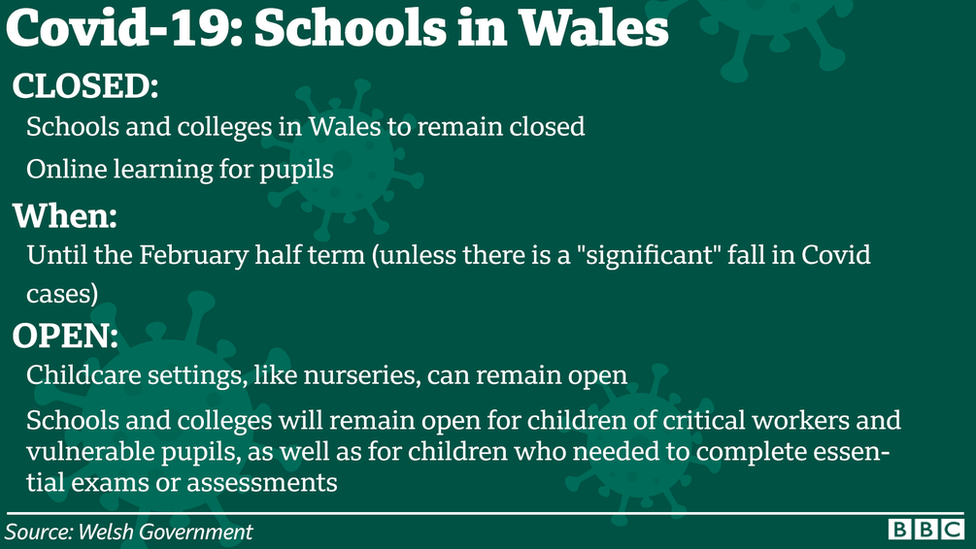

A father with a teenage daughter
A father called Ron, from Bridgend, told the phone-in with Dot Davies he was predominantly worried about the effects on children, particularly in the south Wales valleys.
"I just see children deteriorating on a regular basis. I can only speak about my own - I have a teenage daughter and her mental health, her lack of access to her school, her teachers, to her peers, will cause more harm than the virus will cause children.
"It feels like we are asking our children to donate their kidneys to the vulnerable. We are throwing them under the bus as far as I'm concerned."
The disappointed teenager
Anna, 16, who is studying for her GCSEs at Ysgol Gyfun Gwyr, Swansea, said the decision to keep schools and colleges closed was "a big disappointment".
"The idea of staying in the house until February fills me with dread because we've been in the house for months," she told Newyddion.
After a case of Covid-19 in her school, she said she had to self-isolate, adding: "It's been an age since I last saw my friends, went to school, and really learned.
"It's really hard. We've been back in school since Wednesday and doing everything online but it's nigh-on impossible. It's not the same.
"It's really hard to learn. There's this feeling of 'why am I even bothering?' - I really want to go back but I appreciate that might not be possible because people are dying. It's not an easy situation."
Her mock assessments before her final assessments - which were brought in to replace exams - have been cancelled until the return to school, which she said has taken away some of the pressure.
"Without practising, there's a lot of uncertainty. What's going to be in the assessment? So, it is nice to hear they've cancelled them. It's a difficult situation so cancelling them takes a bit of the pressure off children and young people my age."
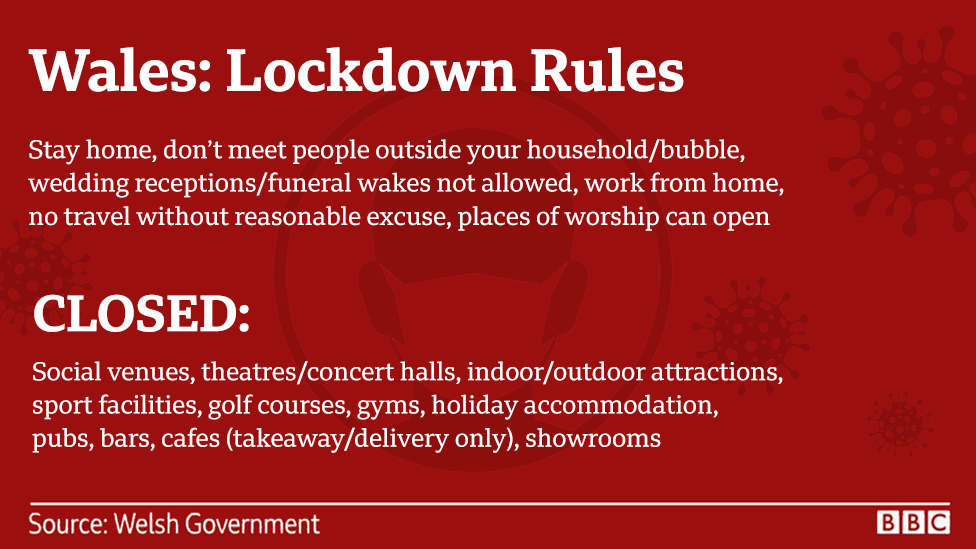

A mother with a relative on a ventilator
Mother-of-three Amanda Williams from Bridgend told the Local Democracy Reporting Service she was glad schools would remain closed and hoped it would minimise the spread of the virus.
"I don't believe schools are safe to open at the moment," she said.
"Until they can classify exactly what the main symptoms are in children I think it's a risk to send children back to school and it's a risk with these new variants."
Mrs Williams lives in Bridgend county borough, where infection rates are the highest among all Welsh local authority areas. One of her relatives is currently on a ventilator at Bridgend's Princess of Wales Hospital with Covid-19.
"In the last week I've heard of a lot of people passing away such as friends of friends. It's starting to get closer to home."
A teacher with twins
Sarah Curley, a maths teacher and mother of twins, also from Bridgend, said she would "rather be in school" but agreed schools remaining shut was the "safest option".
She said: "In school each day I come into contact with 100-odd pupils and we don't wear PPE."
Ms Curley said she was glad her school, Coleg Cymunedol Y Dderwen in Bridgend, would not be welcoming students back on Monday, as originally planned, because of the area's high infection rates.
"My anxiety was through the roof around Christmas. I could see the numbers going up and I was thinking, 'I've got to go back into school next week'."
- Published8 January 2021
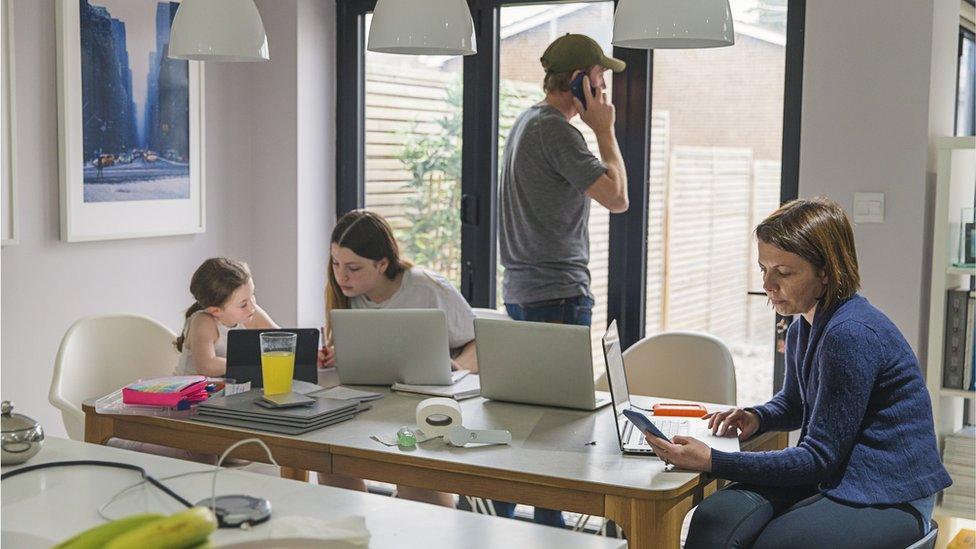
- Published27 May 2022
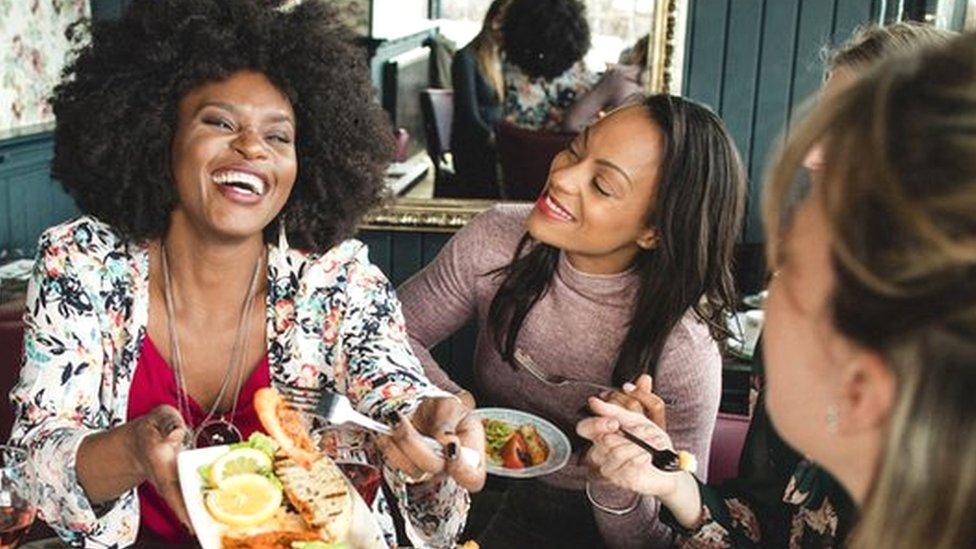
- Published5 January 2021
